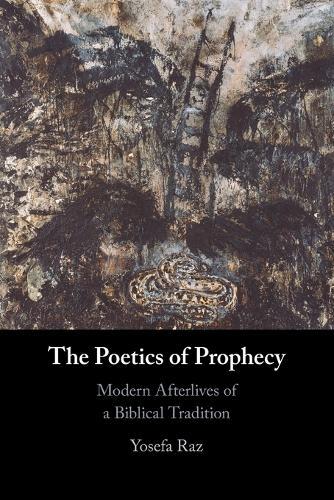Overview
Since the mid-1700s, poets and scholars have been deeply entangled in the project of reinventing prophecy. Moving between literary and biblical studies, this book reveals how Romantic poetry is linked to modern biblical scholarship's development. On the one hand, scholars, intellectuals, and artists discovered models of strong prophecy in biblical texts, shoring up aesthetic and nationalist ideals, while on the other, poets drew upon a counter-tradition of destabilizing, indeterminate, weak prophetic power. Yosefa Raz considers British and German Romanticism alongside their margins, incorporating Hebrew literature written at the turn of the twentieth century in the Russia Empire. Ultimately she explains the weakness of modern poet-prophets not only as a crisis of secularism but also, strikingly, as part of the instability of the biblical text itself. This title is part of the Flip it Open Programme and may also be available Open Access. Check our website Cambridge Core for details.
Full Product Details
Author: Yosefa Raz (University of Haifa, Israel)
Publisher: Cambridge University Press
Imprint: Cambridge University Press
ISBN: 9781009366298
ISBN 10: 1009366297
Pages: 230
Publication Date: 25 September 2025
Audience:
General/trade
,
General
Format: Paperback
Publisher's Status: Active
Availability: Manufactured on demand

We will order this item for you from a manufactured on demand supplier.
Reviews
'With high critical intelligence and the ear of a poet, Yosefa Raz illuminates, in comparative fashion, exemplary instances in the history of powerful strain of post-Biblical poetry. Her close attention to the texture and traditions of prophetic poetry, in well-chosen instances from the Bible to the past century, show us once again how compelling and urgent such poetry can be.' Ian Balfour, Professor Emeritus, York University, Toronto 'The Poetics of Prophecy is a masterful work of comparative literature, graced with a poet's touch. Yosefa Raz uncovers a dialectic between strong and weak prophecy—the one transformative yet aggressive, the other chastening – from the Bible to late Romanticism, Isaiah's Israel to our own time. Raz illuminates the manifold works she looks upon.' Adam Potkay, William R. Kenan, Jr. Professor of Humanities & English, William & Mary 'In this brilliant and highly original book, Yosefa Raz shows how modern poets and scholars invented a new perception of prophecy. In their writings, biblical prophets are not extolled for their rhetorical power but rather for their bold acknowledgment of failure. Prophetic stammers and anxieties, according to Raz, are not merely disastrous in their incommunicability: this is precisely where literary creativity begins. Beautifully written, this book offers a major contribution to our understanding of an unknown chapter in the reception of prophetic traditions.' Ilana Pardes, Katharine Cornell Professor of Comparative Literature, Hebrew University of Jerusalem 'Yosefa Raz makes a very strong case for weak prophecy. Every paragraph of this memorable manifesto is a revelation and a delight. It is hard to imagine any other author who could move so deftly between biblical literature, histories of biblical criticism, and poetry, and seem equally at home with the prophet Isaiah, Ahad Ha'am, Ann Carson and William Blake. What is most impressive is the author's skill in combining beautiful close readings, striking syntheses and comparisons, and new ways of framing 'secularism', orality and media, and the complexity of biblical afterlives. This wise and rich book has clearly been a long time in the making—and its striking oracles deserve a careful hearing, from biblical scholars and literary critics alike.' Yvonne Sherwood, Visiting Research Professor of Religion, University of Oslo 'This brilliant book about the modern afterlives of biblical prophecy has arrived precisely when we need it most: in a politically, ecologically, and even medically perilous world, the doomsayers of old (and new) seem to be claiming a new purchase on modern consciousness. In her patiently nuanced study of prophecy in the long nineteenth century, Yosefa Raz points the way to an understanding of instability as nothing less than the ground of ultimate strength, one with the potential to contest hegemonic powers.' Karen Weisman, Review 19
Author Information
Yosefa Raz is teaches in the department of English Literature at the University of Haifa, where she specializes the study of the Bible and its reception, poetry and poetics, and Romantic and contemporary poetry. She is also a poet and translator, with work recently published in The Brooklyn Rail, Boston Review, and The Los Angeles Review of Books.



